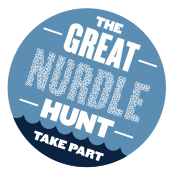Using peer reviewed research to support your campaign messages and data is really important. Researchers are widely viewed as experts in their field and research papers are peer reviewed by other experts in the field. This expert support gives additional weight to the messages your organisation wants to convey. Governments often require substantial, accredited long-term evidence of the issue to make big decisions, such as changing legislation or defining plastic pellets as hazardous.
Opportunity
Building an evidence portfolio increases awareness of the issue, when people care, politicians start to listen. Government is more likely to trust scientific evidence and experts with academic credentials, therefore peer reviewed science is the strongest argument you will ever have in your portfolio when trying to build momentum on a policy level.
Challenge
Academic research articles are for academic audiences, therefore the level of detail and language can be difficult to communicate to different audiences without loosing the scientific credentials of the information.
Access to research articles is often restricted behind journal paywalls that non-academics may not be able to access easily.
Actions
– Join Research Gate
This is a research community social networking platform for scientists and researchers to share papers, ask and answer questions, and find collaborators.
– Contact the research author directly
– Check your local academic and non-academic library
Many academic libraries are open to the public, even if you are not affiliated with the university. If your library does not have access to relevant journals check if they are able to access them for you via inter-library loan
– Use google scholar
– Use an Open Access browser extension
More and more research is published Open Access as governments around the world are mandating that research paid for by taxpayer money be freely available to those taxpayers. Browser extensions have been created to make it easy to spot when the full text of an article is free.
